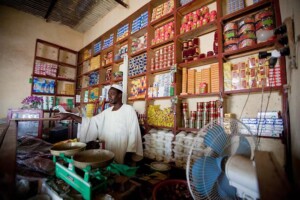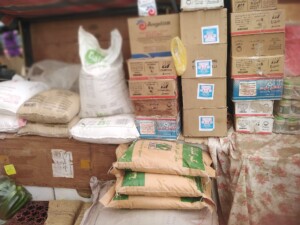Ariab gold production company closed by Beja protesters
Protesters in Red Sea state closed the gates of the Ariab gold production company grounds in Hassai yesterday morning in protest against what they consider the targeting of the deputy general manager of the company, Mohamed Hagwab, a Beja from the region.
 A site of the Ariab Mining Company in the Red Sea hills (file photo)
A site of the Ariab Mining Company in the Red Sea hills (file photo)
Protesters in Red Sea state closed the gates of the Ariab gold production company grounds in Hassai yesterday morning in protest against what they consider the targeting of the deputy general manager of the company, Mohamed Hagwab, a Beja from the region.
Haider Siraj, a resident of the area, said in an interview on Radio Dabanga’s Sudan Today programme that the people stopped the production and closed the main gate of the Hassai mine, the adjacent factory, and the main camp.
He explained that the closure came against the backdrop of the minister of minerals’ decision to appoint an employee who is not from the region as the company’s general manager, bypassing Hagwab.
The protesters said that they will only allow the resumption of work in the company if their demands are implemented; they demand the appointment of Hagwab as director of the company and a commitment to corporate and social responsibility.
In Port Sudan, capital of Red Sea state, the Beja Youth Gathering announced the closure of Ariab’s offices in the city, in solidarity with the demands of the people in Hassai, 200 km west of Porst Sudan.
In a memorandum addressed to the chairperson of Sudan’s Sovereignty Council and the federal minister of minerals, the Beja Youth Gathering expressed their adherence to positive discrimination for residents of the region and demanded the dismissal of the director of Ariab Company.
The Hassai mine of the Ariab gold production company started operating in 1992 and was Sudan’s first modern gold mine. 12 pits have been mined over the years.
Yesterday, Radio Dabanga reported that an environmental activist in Sudan’s River Nile state warned of the environmental damage and serious public health problems that have befallen the areas between the towns of Atbara and Berber as a result of the traditional mining operations in which mills and chemicals such as cyanide are used.
Sudan’s government has made various, differing attempts at regulating gold mining and exports in Sudan. The Central Bank of Sudan (CBoS) and authorities in Khartoum, such as the Ministry of Finance, therefore, have a level of control over gold mining activities.
Vice-Chairperson of Sudan’s Sovereignty Council and Commander of the infamous Rapid Support Forces (RSF) Mohamed Hamdan ‘Hemeti’ Dagalo is linked to significant companies and stakeholders in the gold mining industry.
Sudan is reportedly the second-largest producer of gold in Africa and the ninth in the world.











 and then
and then